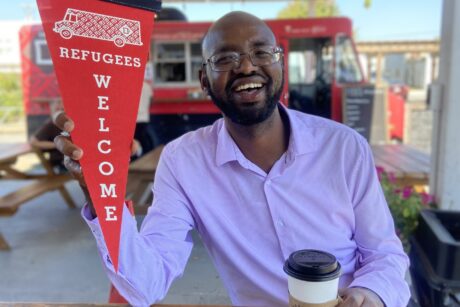A church's fixer-upper parsonage becomes a community center to preserve Latino culture and bridge cultural, generational, and denominational gaps.
Faithful Generosity Story Shelf (new layout)
The following stories are part of Lake Institute’s story collection, The Faithful Generosity Story Shelf, which highlights congregations and other religious organizations who have sought to use their assets and resources in creative—and sometimes surprising—ways as an expression of faithful giving.
Each entry in our Story Shelf is short enough to be read and discussed during a committee meeting or other group gathering. Our hope is that these accessible vignettes will spark new questions, conversation, and imagination among clergy and laity about what might be possible with the funds, buildings, land, and other resources in their care. Learn about Ways to Use the Story Shelf. If you know a story that should be included in the Story Shelf, submit it here.
Find more stories:
Scottsville Church of Christ stepped forward, without hesitation, to run a food distribution program when an urgent need arose in their community.
Reeman Christian Reformed Church in Fremont, MI., opened Wellspring Adult Day Care in 2016 to help those who need a place to go during the day while giving their caregivers a much-needed break.
A seminary in Ohio has combined its theological teachings with environmental concerns to feed the body while nourishing the soul.
A Presbyterian church transforms their unused manse (minister's house) into a home for Afghan refugees, and serve as community for the home's first tenants.
A closed church reopens as a worship space for Spanish-speaking immigrants, offering healing sound therapy.
A NYC church continues its long-term relationship with the theater community and generates needed income by opening rehearsal space.
Churches in Wilmington, Delaware share their commercial kitchens so food entrepreneurs can grow their businesses.
The congregation of Biltmore United Methodist Church sold their property and is devoting their energy and resources toward responding to Asheville, North Carolina’s most pressing social needs.
A community group in North Carolina asked to use a church's lawn for a small community garden. The church agrees to share their lawn, free of cost, and new neighborhood relationships are formed.


